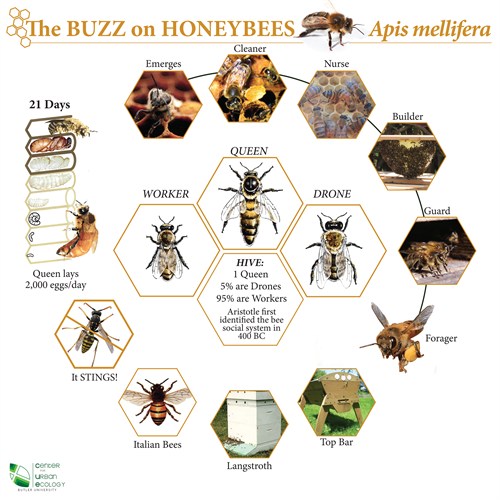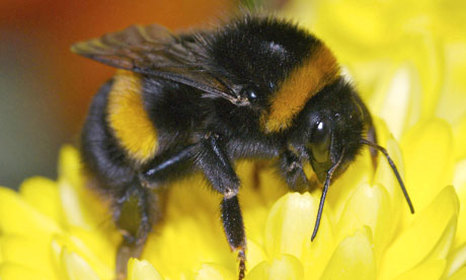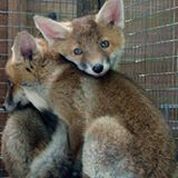 The European Union have forced our Minister for the Environment to climb down and accept a ban on neonicotinoids. The gang of three clothianidin, imidacloprid and thiamethoxam, are to be phased out with a cut-off time to full ban by Christmas this year [2013]. There is an immediate total ban of the use of the pesticides for all amateur or private gardeners and Homebase, B&Q and Wickes have already removed products containing them from their shelves. This is a two year ban to give scientists the opportunity to discover whether these chemicals are to blame for the loss of our bees. It is thought that the three chemicals may play a significant role in Colony Collapse Disorder, and the decimation of bee populations across the globe. Fortunately for our bees, they are essential to human kind because they pollinate crops such as rape seed, and replacing bee pollinators with hand pollinators could cost UK farmers almost £2 billion a year. Some people feel the agro/chemical industry has a lot to answer for. It has created sterile deserts of vast green or yellow spaces for growing crops and in the process has decimated hedgerows and the animals and insects that used to thrive there. The trouble is the serious problems that arise from using pesticides/insecticides may not just be limited to one particular group of chemicals. The UK Pesticides campaign in West Sussex states that the current UK policy regarding pesticides, fails to assess the risks of exposure to animals, insects or humans. Georgina Downs of the UKPC says “there needs to be a complete policy shift away from the dependence on pesticides by utilising sustainable non-chemical farming methods.” Andy Atkins, Executive Director, Friends of the Earth says that while he welcomes the ban we need a proper strategy for tackling other possible causes of falling bee numbers. FoE are pushing for a Bee Action Plan, and this idea has the backing of 180 cross party MPs, as well as tens of thousands of individual members of the public including retailers and farmers. A commentator in the Times, (Letters, Wed May 1st) States that the British Bee-keepers Association is reluctant to call for action on the gang of three because they are worried about what comes next. It is a complex problem, and while we rejoice at the ban, it would appear that little thought has been given to the need for the replacement pesticides required to grow a nation’s crops. It is a complicated situation, and it has not been helped by our UK government’s lack of independent research. The antis argue that there is no evidence to support the gang of three being the culprits, while the pros say that we cannot be complacent and while we wait for an independent, sound science-based report, some bee species may become extinct. The Soil Association is also worried about our bees and it even gives practical advice on how we ordinary people can help. They advise us to buy organic food, because farmers who grow organic foodstuffs don’t spray their crops with neonicotinoids. They also produce a variety of crops upon which bees can forage. As consumers we could make a huge impact on farming practice and policies. After all if chemically produced food stuff is left on the super market shelves, the farmers are going to wonder if perhaps they should all join the organic revolution. The other piece of useful advice from the soil association is to not use neonicotinoid pesticides on home grown crops. Apparently the gang of three are not the only ones available, so it might be a good idea to check all labels when buying garden products Its not just pesticides that are the problem. Weed killers and fertilisers are also spoiling habitat for bees and other pollinating insects. Professor Francis Ratnieks, at the laboratory of Apiculture and Social Insects ,University of Sussex has this to say, "The use of herbicides and intensive forms of agriculture means that fields of wheat and barley now have few weeds. Fields of grass now have few wild flowers, clover is less used and much of the heather moors have been ploughed up." As a result of this concern, one of the laboratory’s research areas will be to investigate how changes in land use can affect bees. Bees need certain things in order to thrive. Food in the form of flowering plants is one thing and finding the right place to build a nest is the other. These two considerations must be within flight range, usually two or three miles, of each other and the route in-between must be safe. Not all bees like the same plants, so the suitability of the plant species must be compatible with the species of bee. With over 250 species of native bee in Britain it’s no wonder that the majority of these are threatened with extinction due to loss of habitat. The most threatened is the ‘solitary bee, so called because it likes just one type of flower. If the favourite flower becomes scarce due to ‘over-zealous’ farming methods, so will the bee be scarce, and when the bee is scarce, the favourite flower will become even scarcer because it isn’t being pollinated. We end up with a vicious circle. The Leafcutter and the Red Mason Bee live in tunnels in the ground, or in hollow reeds or twigs, or they make nests in holes in wood. These are the solitary bees who gather pollen from specific plants. Usually, because of the special relationship with their pollinators, these plants are rare and special ‘Solitary bees’ live in wooded areas or log piles and wilder areas on farms. Some of our more caring farmers purposefully leave wild areas to attract solitary bees. Organic farmers favour red and white clover sometimes as a rotational crop. This help to maintain soil fertility as well as providing bees with pollen. Red clover or ‘bee bread’ is one of the bees moors favourite food. Honeybees in particular love red clover, because it is easier to get at the nectar with their shorter tongues. So perhaps the true solution to our bee problem is organic farming. Natural ecosystems and a biodiversity of plants and habitats. We need more wild flowers, more hedgerows and more bee friendly places to live, and by supporting the bee’s place in our delicate eco system, we may just find the saviour for all mankind. Protect our Bees Will you sign the petition to Elizabeth Truss asking she protect our bees?
1 Comment
Hannah
21/5/2015 01:37:42 pm
They do not realize or most probably do not care losing one change could have an devastating effect.
Reply
Your comment will be posted after it is approved.
Leave a Reply. |
Animal mattersCountry lover, amateur naturalist and fox lover fighting to preserve the ban on hunting Archives
September 2016
Categories
All
|


